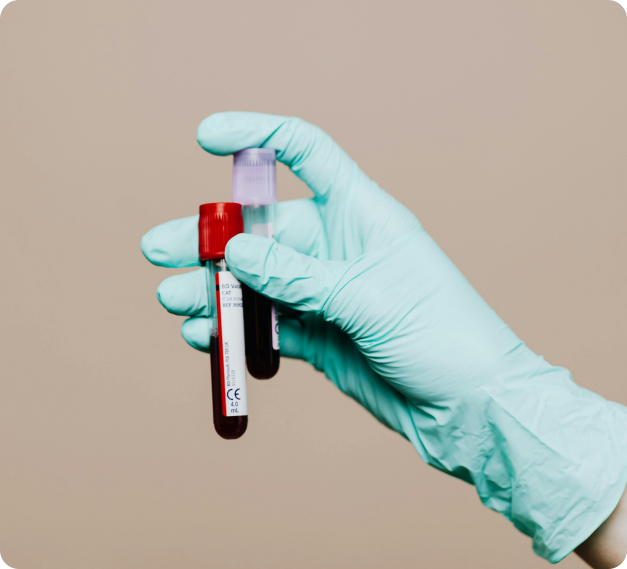
Reproductive carrier screening is a voluntary genetic test recommended by the Royal Australian and New Zealand College of Obstetricians and Gynaecologists (RANZCOG) for all women who are pregnant or planning to become pregnant.
For fertility patients, if you decide to undertake screening, ideally you should wait until all the results are available prior to commencing any treatment.

Chromosomes are small structures present within each of our cells that store genetic information. We have two copies of each chromosome – 23 pairs in total (i.e. 46 chromosomes)
Each chromosome is made up of thousands of genes that determine specific traits (e.g., hair and eye color) and essential bodily functions. If errors occur within genes, this can lead to disease.

Some conditions only need one copy of the gene to contain an error in order for the disease to occur. This is called an Autosomal Dominant condition. Typically, one of the parents will also have the condition.
Some conditions need two copies of the gene to contain an error in order for the disease to occur. This is called an Autosomal Recessive condition. Both of the parents must be carriers – i.e. both will have one damaged and one normal copy. Carriers generally will not be aware they have one damaged gene.
Caused by errors in genes on the X chromosome, often affecting males more severely.
Additional information can be found at: https://www.genetics.edu.au/PDF/Reproductive_carrier_screening-fact_sheet-CGE.pdf

This is usually done through an optional blood or saliva test. This sample is then sent to the lab, where it’s tested to see if you carry genes for certain inherited conditions. The lab looks for specific gene mutations that could indicate a risk of passing on a genetic disorder.
Once the results are ready, your specialist will go over them with you. If you are found to be a carrier for a condition, we can help you understand what that means for you and your family, including any next steps you might want to take.
For example, 1 in 25 Caucasians will have an error in one of their Cystic Fibrosis genes (> 1000 errors are known about). This means that if two Caucasians have a child and they do not know their carrier status, the risk to their child is 1 in 2500.
Cystic Fibrosis is a serious condition that affects the health and wellbeing of the affected individual. If both parents are carriers, then 1 in 4 of their children will have Cystic Fibrosis; 2 in 4 will be carriers; and 1 in 4 will neither be affected nor a carrier.
If both parents are carriers, then one option would be to screen any embryos created as a result of IVF and ensure that a non-affected embryo is returned.
If you're planning to start a family or are already early in your pregnancy, then carrier screening should be considered regardless of your family history or ethnicity.
Couples who have a family history with a specific genetic condition, can look into more appropriate tests to determine the likelihood.
For those who plan on using donor sperm or egg, it's best to discuss carrier screening options with us prior.


As a part of my partnership with Genea, we have access to ‘Eugen’ who offer a range of carrier screening options for Genea Fertility Partners.
Commonly tested conditions include cystic fibrosis, spinal muscular atrophy and Fragile X syndrome. Results can take 2-3 weeks and if eligible, it may be rebated through medicare.
For more comprehensive screening, you can test for the 3 common conditions and 500+ rare serious childhood onset conditions. This occurs at an out of pocket cost and results are generally available in 4-8 weeks.
Additional resources are available for more detailed information about the process and its implications:

Expanded Carrier Screening looks for a wide range of genetic conditions - sometimes hundreds of them - all at once. It gives you a broad view of your genetic risks, even if you don’t have a specific family history or belong to a certain ethnic group.
Targeted Carrier Screening focuses on specific conditions based on your family history or ethnic background. If there’s a known genetic condition in your family or you belong to a group at higher risk for certain disorders, this type will test for those particular conditions.

One of the key benefits of reproductive carrier screening is that it helps you identify potential genetic risks before starting a family. By knowing if you or your partner are carriers of certain genetic conditions, you can understand the likelihood of passing those conditions on to your children.
With the results from carrier screening, you can make more informed decisions about your family planning. It opens up discussions about your options - whether that means seeking further testing, considering fertility treatments, or exploring alternative paths to parenthood.

Reproductive carrier screening can be ordered by your GP or fertility specialist. They can discuss your options with you and may refer you to a genetic counsellor. Some genetic testing laboratories and clinical genetics services offer genetic counselling for people considering carrier screening.
There are Medicare Benefits Schedule (MBS) items available for carrier screening related to conditions like fragile X syndrome, spinal muscular atrophy (SMA), and cystic fibrosis.
If your results do show that you are a carrier of a genetic condition, it’s important to chat with your specialist to understand your risk of passing the condition on to your children. Depending on your findings, further testing or prenatal diagnostic testing may be recommended.

Understanding your genetic risks is an important part of planning for a healthy family. Reproductive carrier screening can provide clarity and help you make informed decisions about your fertility journey.
I have dedicated my life to helping couples who have always dreamt of starting a family and dedicate the time to ensure you have the knowledge to feel empowered on your path to parenthood.
Reproductive carrier screening is a genetic test that identifies whether an individual carries genes for certain inherited conditions that could be passed on to their child.
Carrier screening is recommended for individuals or couples planning pregnancy, particularly those with a family history of genetic conditions or from ethnic groups at higher risk for certain disorders.
Carrier screening can identify a range of genetic conditions, including cystic fibrosis, thalassemia, Tay-Sachs disease, and spinal muscular atrophy, among others.
The test is done through a simple blood or saliva sample, which is analyzed for genetic mutations linked to inherited conditions.
No, carrier screening is optional but highly recommended for couples who want to understand their reproductive risks.
Carrier screening provides valuable information about potential genetic risks, allowing couples to make informed reproductive decisions and consider options like IVF with genetic testing.
Carrier screening is highly accurate in detecting known genetic mutations, but it cannot identify all possible genetic disorders.
Understanding the emotional journey couples endure when they have difficulty conceiving or recurrent pregnancy loss is essential to my approach.
Creative Advertising by Kiin Agency.